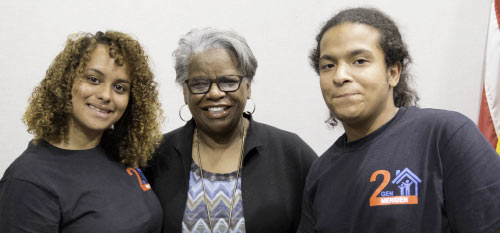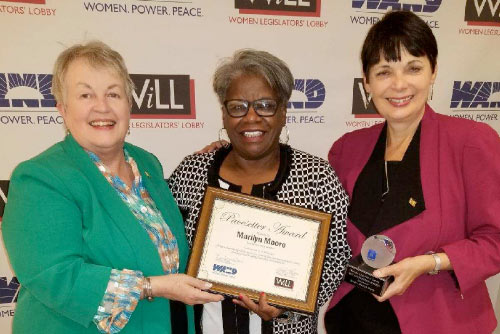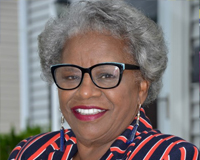2GEN in the Spotlight
Serving as the New England “poster child” for the two generational approaches, Connecticut was in the spotlight once again for its Two-Generation program, a model designed to help disadvantaged, low-income families sustain themselves.

Senator Marilyn Moore (D-Bridgeport) recently lead Connecticut’s Two-Generation (2GEN) team consisting of legislators, executive staff, staff and parents while meeting with state legislators, federal government agencies, parents, philanthropic organizations, staff and businesses from seven New England states, Georgia, and Mississippi. They were all interested in learning more about Connecticut’s 2GEN concept. The theme for the forum was “A Whole Family Approach to Jobs: Helping Parents Work and Children Thrive.”
What is 2GEN?
Creating a “Two-Generational” Pilot Program
Connecticut’s state assistance programs tend to split families into parents and children rather than addressing the needs of the family as a whole. But in 2015, in to address this issue, the General Assembly passed a law creating a two-generational (two-gen) pilot program. This innovative program will foster family economic self-sufficiency in low-income households by delivering academic and job readiness support services—including early learning programs, adult education, child care, housing, job training, transportation, and financial literacy—across two generations in the same household.
Why did the General Assembly pursue a two-gen pilot?
In order to access support services, a parent searching for a job, child care or transportation might interact with the Department of Labor, the Office of Early Childhood, the Department of Education, the Department of Social Services and the Department of Transportation at the same time. In contrast, under the two-generational model, the parent would be able to have a single point of contact to access all of the support services at once.
Five municipalities in Connecticut currently offer 2GEN services. The Connecticut General Assembly’s statewide 2GEN initiative equips families with the tools and skills they need to get on the path to opportunity and self-sufficiency, by ensuring education and workforce development services for parents and high-quality early education for children. The two-generational approach recognizes that if any part of a family system is not getting the support it needs, the other parts suffer, too.
“The Posterchild”
Since launching the 2GEN model in 2015, Connecticut has become the posterchild in New England for this type of approach. This June, Senator Moore, along with the Connecticut Commission on Women, Children and Seniors, hosted representatives from the Governor of Maryland’s office who visited Connecticut to learn more about the state’s 2GEN approach to combat intergenerational poverty.
At the time, Maryland’s governor had recently signed an executive order establishing a 2GEN Commission and pilot program. During their visit to Connecticut, the Maryland group met with Zulianelis Rosario, of Meriden, who was a pregnant 18-year-old receiving prenatal care at the Community Health Center when she was referred to the 2GEN program. Her 9 month old son Gabriel now attends play dates at one of three family resource centers. Through 2GEN, Zulianelis received help getting her driver’s license and is enrolled in classes to get her high school diploma. She hopes to become a certified nurse’s aide.
Moore Named Legislative “Pacesetter” by WiLL

Senator Marilyn Moore (D-Bridgeport) was selected as a 2017 Women Legislators’ Lobby “Pacesetter” for her contributions to progressive public policy addressing today’s challenging and complex issues. Sen. Moore hopes this recognition can inspire and encourage other women to step up and lead.
Share this page:
